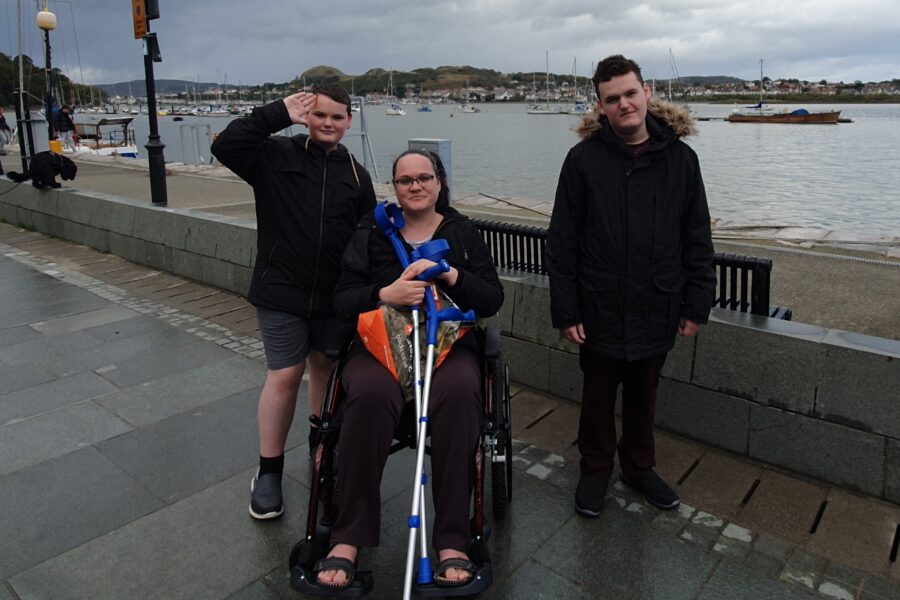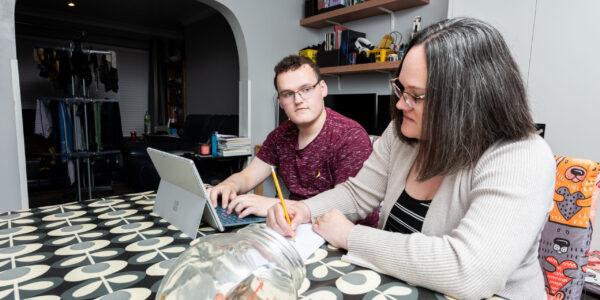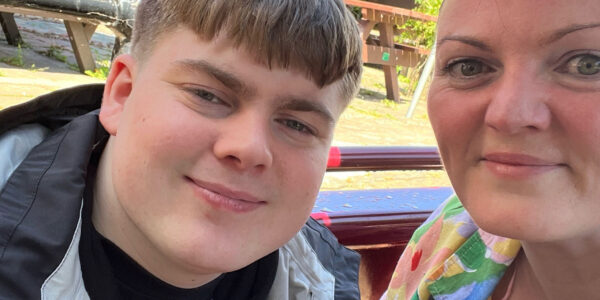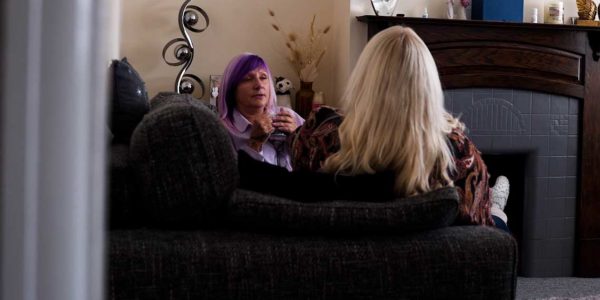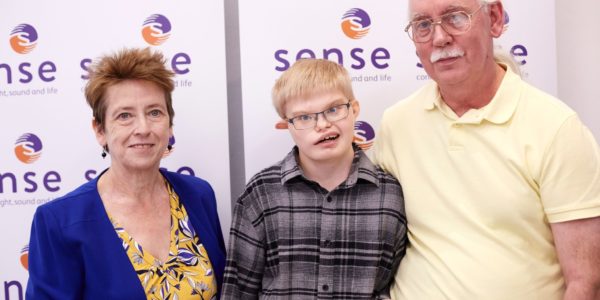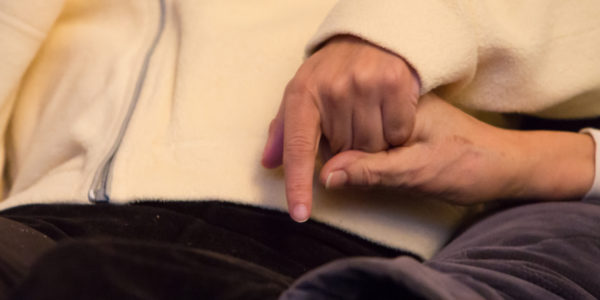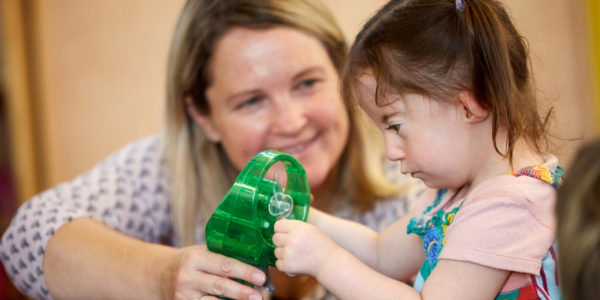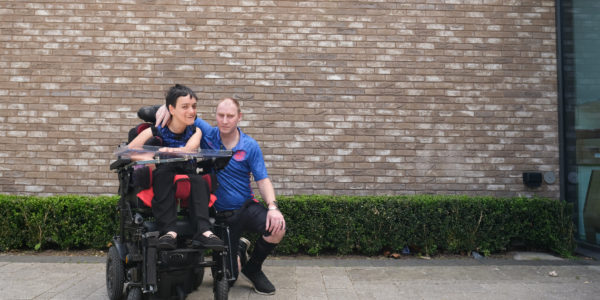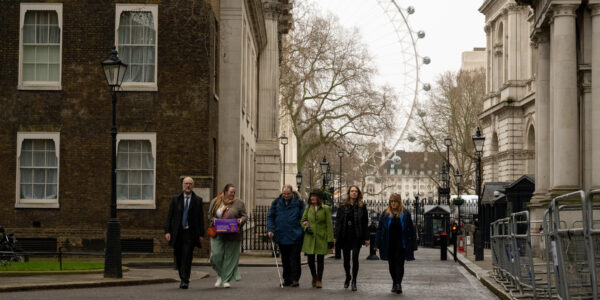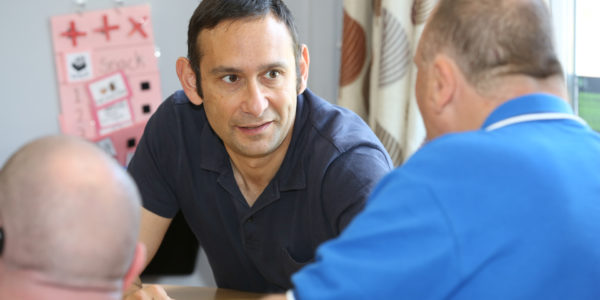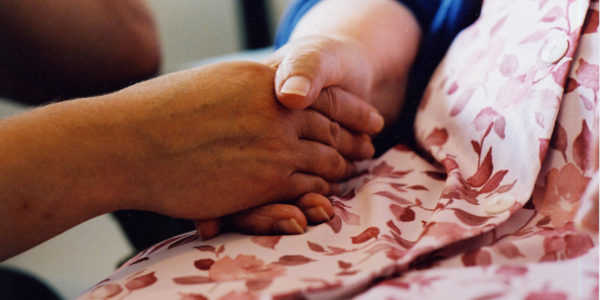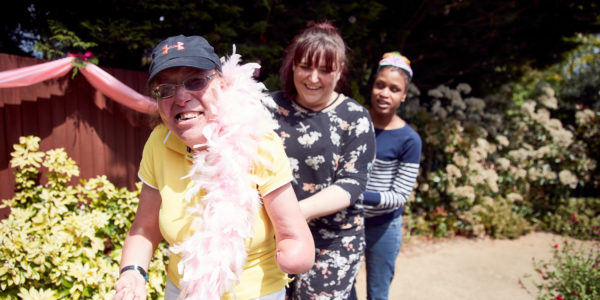Demand more support for disabled people in the cost of living crisis
Disabled people and their families are at breaking point.
Descriptive transcript of the film
We see a wheelchair close up, Rosey’s name is printed onto the wheel with a picture of a blue rose.
Yvette: Because Rosey is a non-mobile child, she can’t self-regulate her temperature. It’s up to me to monitor and adjust accordingly.
Yvette is putting Rosey’s slippers on, tightening the Velcro strap. She places Rosey’s foot back on the footrest and give her knee a little affectionate squeeze.
We see Rosey sitting in her wheelchair. She’s in her early twenties and has brown curly hair. She’s in the living room and Yvette, who’s in her mid-forties with purple hair and pink lipstick, is on the floor in front of her, looking up at her daughter.
We then see Yvette sitting on the sofa, talking to camera.
Yvette: If it’s too hot, then we have to try and cool her down and, obviously, now we’re coming into winter we have to put the heating on and maybe put, you know more slippers on her, a blanket to make sure that she’s not cold.
Yvette reached out a hand to feel and adjusts the temperature of a wall radiator, touching it again to make sure it’s warm.
Rosey is in her bedroom. Her mum is tucking a blanket onto her lap.
We see the heating thermostat showing that the heating is set to come on a 6am.
Yvette: The heating goes on with Rosey about six o’clock in the morning. I get her up at seven, so the house is warm.
We see Rosey being collected for college by a member of staff. She’s wheeled outside and her mum stands at the door behind her.
We see the thermostat; Yvette is turning the heating off.
Yvette: She leaves for college about nine o’clock and the heating goes off then. It doesn’t come back on until four o’clock in the afternoon, twenty minutes before she comes home.
In Yvette’s sister’s home, we see the two women sitting in the front room. They’re chatting on the sofa over hot drinks.
Yvette: I go to my sister’s; her house is warm. So yeah, I just go and spend the day there – there’s no point sitting here in a cold house. I’ve got to try and save as much electricity as I can, so that I can have it on for Rosey on an evening and at weekends.
We see Rosey lying on cushions on floor of her room, surrounded by fibre optic light tubes and other sensory toys. Rosey and her mum are playing with the lights and with ribbons, sequined material and shiny pom-poms. Yvette runs them across Rosey’s hands and lifts them before her face to see.
Yvette: Rosey and I have a fantastic bond. She’s a very social young lady. We love being out and about – walks, the beach… I even took her into the sea this year with a beach wheelchair.
Yvette is sitting on the sofa, talking to camera.
Yvette: She’s my absolute world. Yeah, my absolute world. She’s an absolute delight and it’s a great privilege and an honour to be, I suppose that responsible for her and giving her the best life.
We see a wall radiator in the corner of a room, and another nearby to where Rosey is playing with the lights.
Yvette: We’ve always been very careful with the cost of living, but now the heating has doubled, I don’t know how I’m going to cope this winter.
Yvette is sitting on her sofa in a dark living room, looking out of the window. She talks to camera again. Then we see lots of framed photographs of Rosey as a little girl.
Yvette: Well, it impacts massively because, as Rosey’s carer, I want her to have the best life. She’s an end-of-life young lady, so every day is a bonus and I want to make that count. And I want her to have the best lift and not for me to worry about if we can heat the house or not. We need to be making memories here.
In the hallway, we see a radiator with a wooden cover. Resting on top of this is a large multi-photo frame. It’s filled with pictures of Rosey and the family. In the middle of the frame is the word ‘memories’.
The screen fades to white. Text appears on the screen:
Families like Yvette’s need more support. Act now. Sense.org.uk/CostOfLiving
The is replaced with two dots. Orange on the left and purple on the right. The dots spin around the screen then comes together in the centre, forming two hands with the letter S in the middle. This is the Sense logo. Text appears below the logo.
Sense. No one left out of life
The cost of living crisis is far from over for disabled people, who continue to face higher living costs for essentials like heating, food and travel. For many, this is the second winter they are facing without enough financial support.
The situation is even worse for people with complex disabilities. They use more energy for specialist equipment, such as breathing machines and motorised wheelchairs.
And while many people may have had a brief break from higher energy bills this summer, many disabled people didn’t have that luxury. Their equipment still needs power when the sun is shining. Now, as it gets colder again, the debt, stress and worry are mounting. They deserve more support.
What we’re asking for
-
A benefits system that meets disabled people’s needs
This means the government should review of how benefits are set and increased in the long term.
-
Financial support to cope with higher energy costs
This means introducing a reduced energy tariff for the most vulnerable households.
Stories of the crisis
If you’ve got a story to share about how the cost of living has affected you as a disabled person, get in touch with us.
Make sure you’re getting the support you’re entitled to
How we’ve helped
We gave emergency grants to disabled families in response to the cost of living crisis in 2022 and 2023.
Take a look at the fund’s impact and what we learnt.
If you’re able, you can support our work by donating today.

